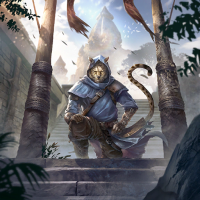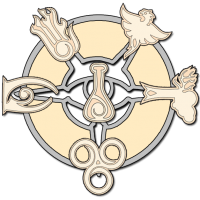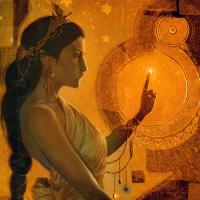January 3, 2016 4:09 PM EST
I think it's not just sample size, but it's just one angle, one approach, one research question. The results here beg answers to a bunch of other questions (obviously since we easily dig into the implications here) and I think we just don't have a complete picture yet.
True that. Am I right to think this is the first such study of it's kind? If so then maybe it can be forgiven and part of the exercise was to identify other questions in need of addressing? At the very least it has dug up a whole host of other factors to consider as you said.
I think that's a very interesting point, but to that I might also argue that the mind is still quite plastic, and I think to suggest we're unchangeable doesn't give enough credit to our awesome brains. We only believe we can't change or adapt, but we do it all the time in a number of other ways. The drive to change is the other part of that equation. If it sounds optimistic, it's because it is. I know that wanting to change can be equally hard, and we find ways to justify talking ourselves out of it all the time because of it. But perhaps this is a bit off-topic. 
Optimism is a great point and scientifically proven iirc. The human brain is hardwired to be hopeful otherwise life would have made us give up long ago. I get where you're coming from I think, that the flexibility of the human brain ensures we can be spontaneously inspired to do things and explore new experiences. You may got to the cinema and watch the new Star Wars with your most geekless friend and leave with the biggest fan ever. I'm not denying that possibility.
But what about the other side of the scale, those who were geeks but gave it up when they met the love of their life, or some other life-changing event? Is that evidence of emotional needs being met more adequately than that which a hobby can provide?
Uhm. Excuse me? Cough #rephilourhearts cough. I would argue otherwise. 
There's no way I can retort without sounding like more of a totally ungrateful a-hole than I already have. Yet if I had died rather than flounced there'd be no noticeable difference aside from the lack of my return. I'm not saying those who cared about me wouldn't be sad or effected in some way (if they ever even discovered the truth which is unlikely) but can it be said it is similar to losing someone close?
As far as online friendships being inferior to real ones, I think again there's a ton of variation there. For some, certainly. But there's no way that's the case for every instance. To suggest otherwise is an overgeneralization. Especially for people who are more introverted in their daily lives, or struggle with making friends. There are far fewer factors behind a screen than in real-time interactions, and that can give people the space to relax more and be their genuine self more easily, which I think can in turn lead to more meaningful connections. I just think it's impossible (and maybe even a tad disrespectful) to generalize or classify all online friendships as inferior to all real ones when we have no idea what everyone's individual experience is. 
Yeah, that was a bit out of line on my part. You've got me on the defensive now, a sure sign you're winning this debate  (I don't view it as a contest btw, just making a joke). Overgeneralisations are my thing! I don't know that I think I am necessarily wrong, though I can only really base my views through the lens of my own experiences.
(I don't view it as a contest btw, just making a joke). Overgeneralisations are my thing! I don't know that I think I am necessarily wrong, though I can only really base my views through the lens of my own experiences.
I said further back how I have difficulty interacting with people in real life. I like to think this isn't because I am a dickhead but because I choose to keep people at arms length for whatever psychological reason.
So I have turned to the internet and made online friends to fulfil an emotional need in my life. Even here I still keep people at a distance but will concede that there are those who relax much more than I. For an internet friendship to evolve into a "normal" friendship I think it has to go through the same basic stages as any other relationship of it's kind.
As an introvert my relationships are small but meaningful so for that to hold true of an online friendship it must go through the same tests as a regular one. Normally the distances between people can impede that process and stop the friendship evolving.
However, all that is based on what I consider a friendship to be and to me true friends are lifers and will be there right until the end.









 But obviously I'm biased and just speculating wildly here. I have literally no idea. Perhaps the "love of your life" stuff would fulfill an emotional need that I would consider to be somewhat separate from geek culture/gaming. I would think it lends itself to filling an occupational or situational void more than anything else. A lack of real life interpersonal connections is just sort of a side effect I guess...?
But obviously I'm biased and just speculating wildly here. I have literally no idea. Perhaps the "love of your life" stuff would fulfill an emotional need that I would consider to be somewhat separate from geek culture/gaming. I would think it lends itself to filling an occupational or situational void more than anything else. A lack of real life interpersonal connections is just sort of a side effect I guess...? Again, all wild speculation mixed with generalizations here.
Again, all wild speculation mixed with generalizations here. 





